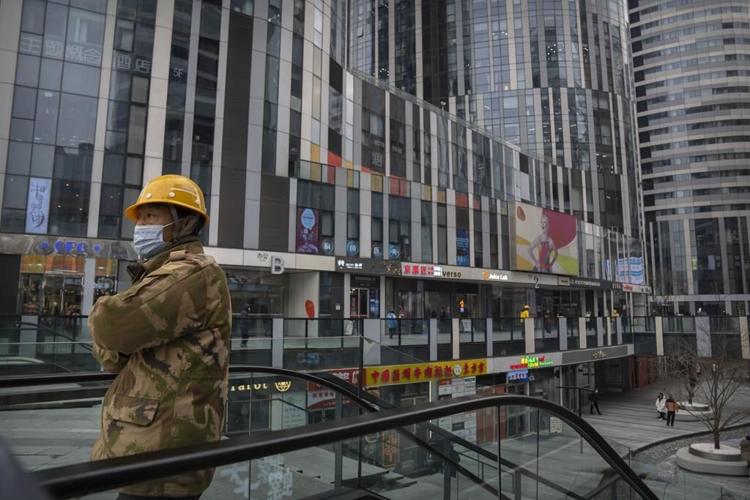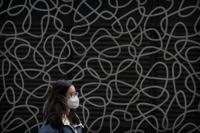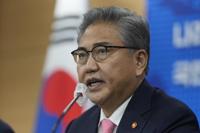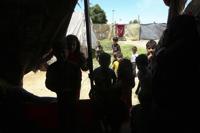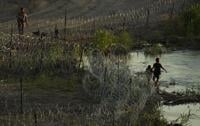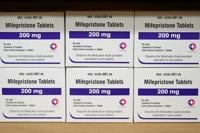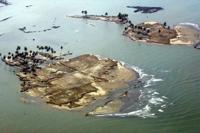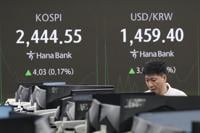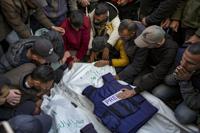TOKYO (AP) — Japan and South Korea defended their public health restrictions on travelers from China on Wednesday, a day after China stopped issuing new visas in both countries in apparent retaliation.
South Korean Foreign Minister Park Jin said he finds it “significantly regrettable” that China stopped issuing short-term visas to South Koreans and called for China to align its pandemic steps with “scientific and objective facts.”
Japanese Chief Cabinet Secretary Hirokazu Matsuno criticized China for “one-sidedly” restricting visa issuances to Japanese nationals “because of a reason that is not related to COVID-19 measures.”
China’s Foreign Ministry threatened countermeasures last week against countries that had announced new virus testing requirements for travelers from China following a surge in COVID-19 infections there. It remained unclear whether China would expand the visa suspensions to others that have imposed stricter virus testing on passengers from China.
South Korea has stopped issuing most short-term visas at its consulates in China through the end of January while also requiring all passengers from mainland China, Hong Kong and Macao to submit proofs of negative tests taken within 48 hours of their arrival in addition to COVID-19 tests at the airport.
According to South Korea’s Disease Control and Prevention Agency, about 17% of the 2,550 short-term travelers from China from Jan. 2 to Tuesday have tested positive.
Japan demanded China scrap the measures, Matsuno said, and will “respond appropriately while closely watching China’s infection situation and how information disclosures are handled by the Chinese side."
Japan had to take temporary measures to avoid a rapid inflow of infections because of China’s spreading outbreaks and lack of transparency about the situation, he said.
According to health ministry statistics, about 8% of 4,895 passengers of all nationalities tested positive upon arrival from Dec. 30 to Jan. 5, and most of the infected were Chinese or those who had recently been in China.
Some Japanese media recently showed Chinese tourists at pharmacies buying anti-fever medicine. The sudden spread of COVID-19 in China last month led to a run on medications and temporary shortages.
Japanese border measures are purely aimed at preventing infections and have aimed to limit effects on international travel, Matsuno said. “It is extremely regrettable that China has one-sidedly restricted visa issuances,” he said.
The Japanese Embassy in Beijing, in a tweet in Chinese on Wednesday, wrote that Japan is not restricting visa issuances and that “China’s approach is completely lacking in reciprocity.”
More than 10 governments in Europe, North America and Asia have announced new virus testing requirements for travelers from China, on Wednesday.
Meanwhile, Thailand sent three ministers to Bangkok’s Suvarnabhumi Airport to welcome the of Chinese tourists in years, in a bid to revive inbound tourism.
Japan reopened its borders for individual tourists in October. Most travelers can show proof of vaccination instead of testing at the airport, unless they show symptoms, but since Dec. 30 travelers from China must show pre-departure negative tests and take an additional test upon arrival. Those who test positive must quarantine at designated facilities for up to seven days.
China’s worsening COVID-19 situation and lack of information mean that South Korea may need to extend restrictions, senior Disease Control and Prevention Agency official Lim Sook-young said at a briefing. “Just because we haven’t seen the emergence of a new variant doesn’t necessarily mean we won’t see one later,” she said.
Park, the foreign minister, said he doesn’t believe that the friction over COVID-19 measures will seriously hurt bilateral relations, which he described as stable.
“The most important reason for our government’s measure is the lives and safety of our people,” he said. “We will monitor the COVID-19 situation in China before determining how long we will maintain our measures."
The World Health Organization and several nations have accused China of withholding data on its outbreak.
Liang Wannian, the head of China’s COVID-19 expert panel, said that all strains of COVID-19 found in China have been reported to WHO. “We have not found any new variants that are worthy of attention and concern,” he said at a briefing Wednesday in Beijing.
Withholding visas from South Korean or Japanese businesspeople could delay a recovery in commercial activity and potential new investment.
South Korea’s Ministry of Small and Medium-sized Enterprises and Startups opened telephone lines for small businesses to report any disruption caused by China’s decision to halt short-term visas. While only a few calls had been received as of Wednesday afternoon, officials said the Chinese steps could hurt some companies exporting to China by forcing their employees to cancel visits and business meetings.
“We are closely monitoring how much disruption” the steps may cause, said ministry official Lee Gwon-jae.
The impact on Japan could be limited for now, as Japanese businesspeople are still largely watching developments. A major tour agency said none of its customers was currently seeking a China visa.
TBS television in Tokyo reported that applicants at the Chinese Embassy's visa center were able to pick up visas due to be issued Wednesday, but that new applicants were turned away.
China is facing a surge in cases and hospitalizations after the country abruptly reversed its “zero-COVID” strategy of trying to contain the virus last month. The country is bracing for a further spread into less developed areas with the start of the Lunar New Year travel rush, set to accelerate in the coming days.
Liang said the peak of the first wave of infection has passed but China remains in a critical period. “It is a serious challenge to the entire medical and health system,” he said.
The worst appears to be over in Beijing, which was hit hard by the initial onslaught of infections, said Wang Guiqiang, head of the infectious disease department at Peking University First Hospital.
“We have borne the brunt in Beijing,” he said. “From the perspective of hospital and clinical treatment, the pressure is still huge.”
___
Kim reported from Seoul, South Korea. Associated Press writer Ken Moritsugu in Beijing contributed to this report.

